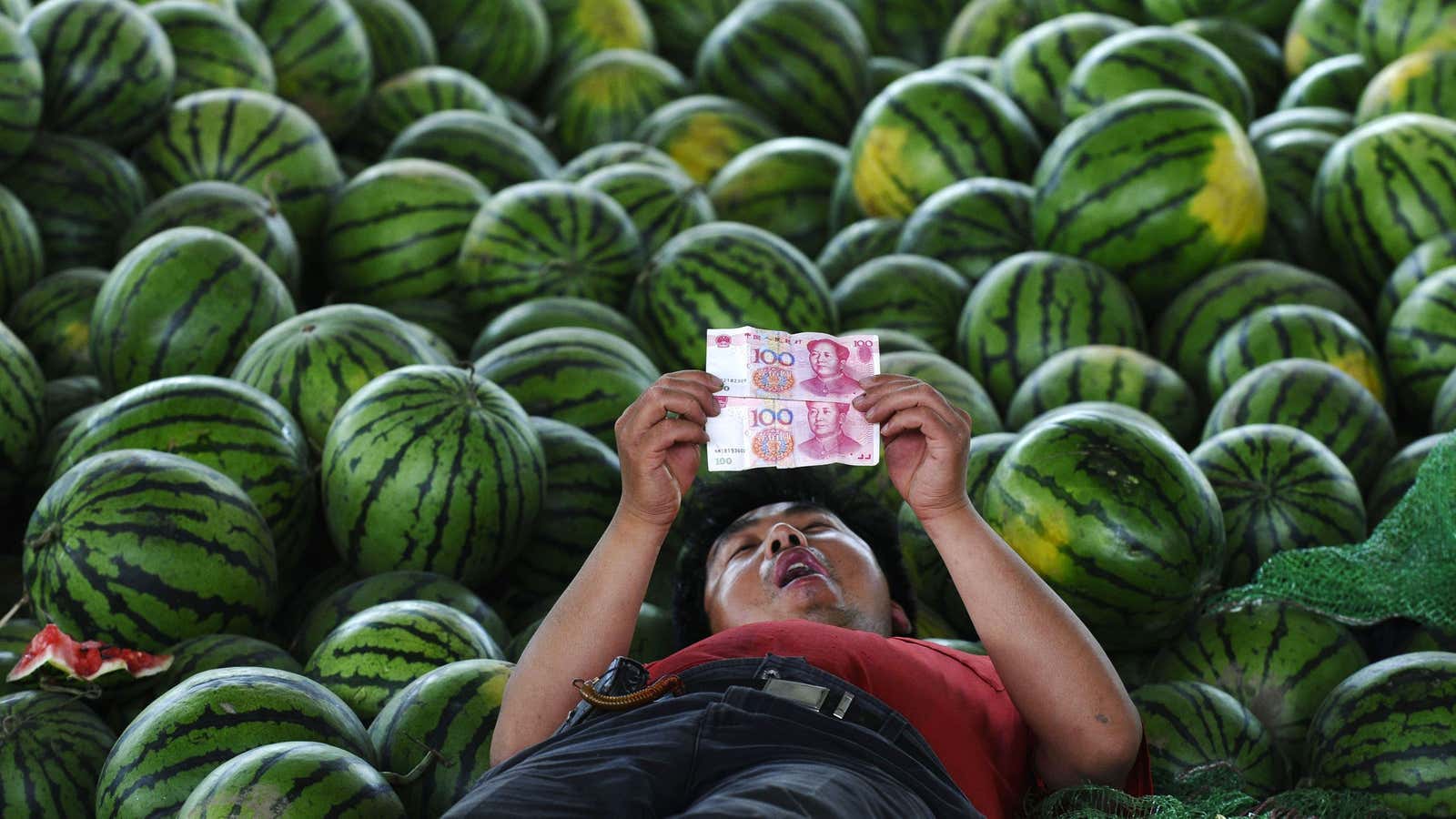The term “anticorruption” has been at the forefront of Chinese president Xi Jinping’s rule. His housecleaning campaign has targeted (paywall) Central Committee and Politburo members, political rivals and powerful tycoons. And as China’s National People’s Congress removes restrictions on presidential terms, it is also expected to shore up Xi’s power by creating an independent anti-corruption agency. But China’s corruption problem extends well beyond its borders.
Nearly two percent of China’s GDP may have been lost to capital flight in the first three quarters of 2017, according to the US Federal Reserve (paywall). And offshore tax havens have proven incredibly popular destinations for those stolen funds: Mossack Fonseca, the offshore law firm behind the Panama Papers leak, found a third of its work in China and Hong Kong.
International money laundering is so pervasive that two telling phrases have reportedly entered the Chinese lexicon: “BVI” and “White Gloves.” Both reflect the global nature of kleptocracy, with Western actors and countries profiting off money moved from developing countries.
BVI
In English, “BVI” is an acronym for the “British Virgin Islands,” a deeply secretive tax haven. But the phrase has a much wider meaning in China: Wealthy Chinese are so fond of setting up shell firms in the jurisdiction that “to have a ‘BVI’ became shorthand in China for any offshore company, regardless of where in the world it was located,” writes Jake Bernstein, one of the Panama Papers reporters, in his book Secrecy World.
White Gloves
For China’s elite, a “white glove” is an intermediary who launders your money; they handle the dirty deeds, while you keep your hands clean. “White gloves” are often well-connected Westerners, such as former top politician Bo Xilai’s two European fixers, British businessman Neil Heywood and French architect Patrick Devillers. Using a BVI shell company, the two men helped Bo’s wife Gu Kalai buy a 7 million euro French mansion and rack up rental fees on it.
Rather than keeping Bo’s hands clean, however, Heywood turned out to be one of the reasons for the flamboyant politician’s downfall. Gu was sentenced to a suspended death sentence for killing the Briton in a scandal that took down her estranged husband.
